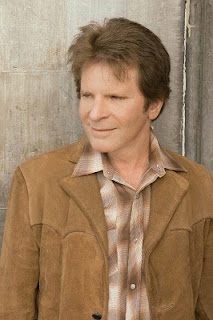 |
| Miley Cyrus |
Besides its clickbait wording, I have multiple problems with this story. It has a self-selecting core sample comprised of users on Deezer, a startup music streaming app that needs publicity to compete with Pandora and Spotify. These apps flourish primarily by serving customers what they already know they’ll like, not what challenges their preconceived tastes. Seems like a recipe to reach the conclusion you already expected to reach.
And I question, given what we know about today’s music business, how much “new” music people listen to anyway. Charles Duhigg dedicates an entire chapter to the premise that, given the opportunity, most people listen to music which resembles what they already know and like anyway. Music labels today utilize this tendency to push music that resembles everything that came before, to the point of maintaining elaborate algorithms to ensure similarity.
I’ve written about this before. When room-temperature porridge like the Chainsmokers’ “Closer” spends twelve weeks at Number One, becoming one of the most successful chart songs ever, we should seriously question whether the charts mean anything artistically. Streaming services sell people “new” music that essentially resembles what they just listened to, and radio, desperate to remain relevant, does the same.
 |
| Tom Waits |
But that doesn’t say anything today. A brief listen to top-40 music today (and remember, working at the factory, I got more than a brief listen) reveals that music changes very, very slowly. The rising ability of more artists to create music hasn’t resulted in more diverse music getting played on today’s radio; not only does every song resemble every previous song, but the radio would often play the same individual song as many as ten times in an eight-hour shift.
I’m describing top-40 radio here, the music genre specifically targeted at customers in their teens and early twenties with ample disposable income, the very market which the Deezer survey claims still seeks new music. I suggest that, while they may seek new titles, the music they embrace is profoundly risk-averse and similar. And the people who manufacture music encourage this artistic timidity to maximize profit.
It’s impossible to separate the Beatles, whose chart success revolutionized music in the key years I already mentioned, from George Martin, the producer who foresaw something in their audition. Martin liked what he heard, got the band in the studio, and encouraged them to push beyond their current sound into something new. He got them to listen to new music and learn new instruments. Martin, if anybody, was the Fifth Beatle.
Martin didn’t have algorithms, software, and digital marketing. He had to splice tape with a razor blade, and guess which songs would make marketable singles. Thus he took risks, and encouraged the market to do likewise. By contrast, reading Charles Duhigg’s story of how Outkast’s “Hey Ya” became a hit, it’s clear that not only did the data-driven manufacturers favor the song for its essential blandness, they manipulated the market to agree with them.
 |
| John Fogerty |
But that goes both ways. Don’t mistake young people finding new songs for seeking new music. Today’s media-saturated, cash-poor youth cannot afford the mental space necessary to really find something new; they’re seeking tunes they can listen to with half an ear while studying, commuting, or changing a diaper. Ours is the era of “novelty” that all sounds the same.
No comments:
Post a Comment